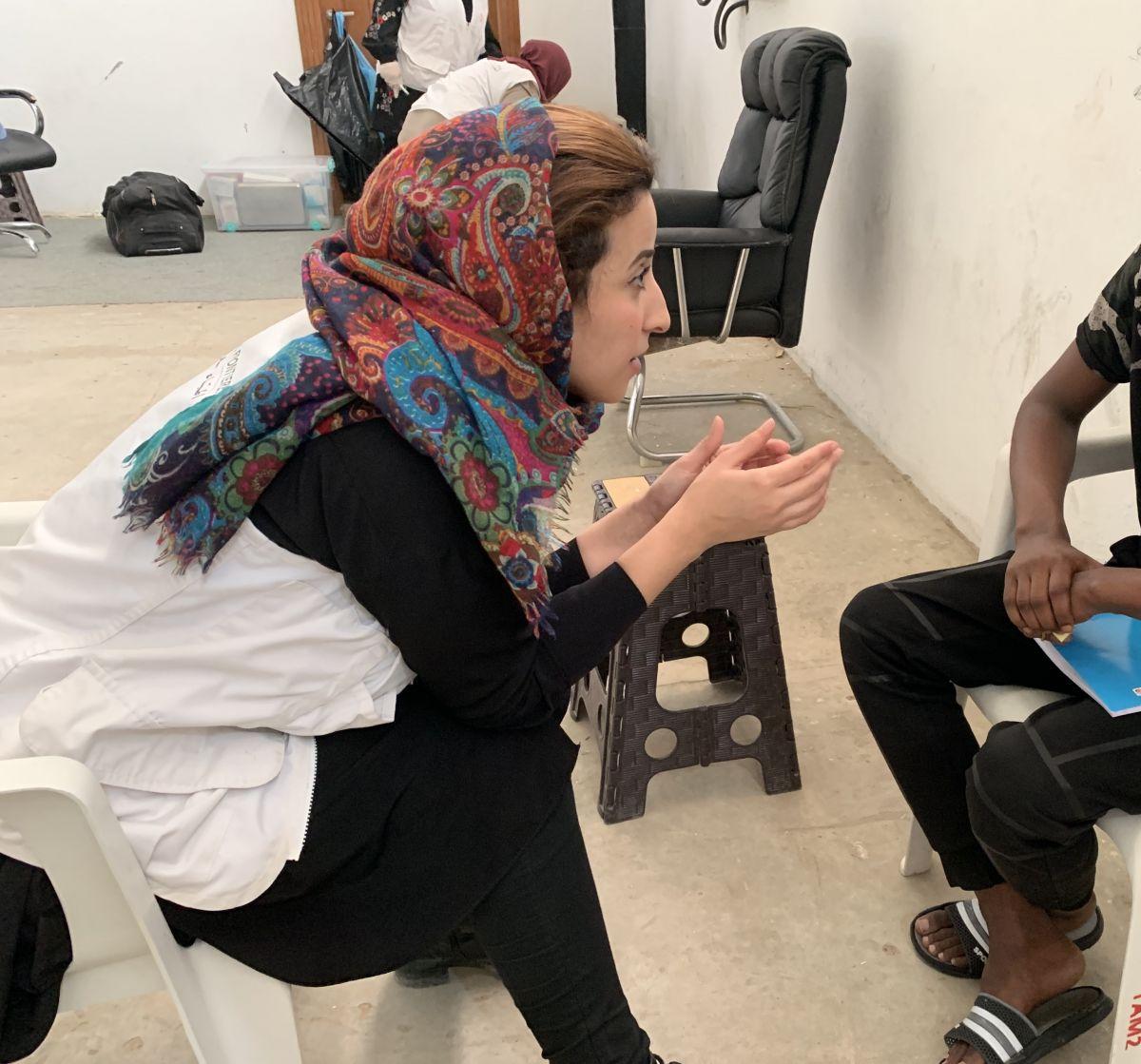TRIPOLI – 25 April, 2019 – Refugees and migrants in Tripoli’s Qasr Bin Gashir detention centre were shot at and injured, according to evidence reviewed by medical humanitarian organisation Médecins Sans Frontières (MSF). With MSF and other humanitarian agencies warning of the dangers for the some 3000 migrants and refugees locked up in detention centres in Tripoli and the surrounding area over two weeks ago, this incident could have been entirely prevented with their urgent and immediate evacuation out of country, the organisation stated.
“The international community can only be blamed for its complete and utter inaction. Today MSF is again pleading for their urgent and immediate evacuation out of the country. Until then they remain at risk for another attack or crossfire,” says Karline Kleijer, MSF’s Head of Emergencies.
On 23 April, reports surfaced of a violent incident in the Qasr Bin Gashir detention centre, where over 700 unarmed men, women and children were trapped. Conflicting accounts by both media and humanitarian agencies on the ground failed to provide a clear picture of what transpired, and the extent of the injuries incurred. Several reports suggested several deaths and at least twelve injured. While not all details of the incident can be confirmed, an analysis of existing photographic and video evidence by MSF medical doctors concluded that injuries shown are consistent with gunshot wounds. These observations are further supported by numerous accounts from refugees and migrants who witnessed the event and reported on being brutally and indiscriminately attacked with the use of fire arms.
“To say we were outraged is an understatement,” says Kleijer. “Nothing justifies such a violent assault on civilians who are trapped in a conflict zone and acutely vulnerable. Mere condemnation of the violence against migrants and refugees is meaningless unless immediate action is taken by the international community to evacuate the remaining thousands to safety.”
With emergency transfer operations taking place on 24 and 25 April, the population in Qasr Bin Gashir has now been moved to the Zawiya detention centre. Whilst on a medical mission in response to the incident in Qasr Bin Gashir, MSF moved 30 people, including 12 children, out of the affected area on 24 April, with the rest of the population transferred by other humanitarian agencies. While they are no longer in the direct vicinity of fighting, people are still subjected to dangerous and degrading conditions and rapidly changing conflict dynamics that continue to pose a threat to all those locked up in detention centres in and around Tripoli.
“Listening to the fear and despair in the screams of the women captured on videos is heart-breaking. There were infants, children, and several pregnant women who experienced this traumatic event,” says Hassiba Hadj-Sahraoui, Humanitarian Affairs Advisor for Libya and Mediterranean Search and Rescue Operations. “Many of these people have endured this before, some multiple times after being intercepted at sea and brought back to Libya. This senseless violence could have been prevented if calls for their evacuation out of Libya made some two weeks ago had been heeded. ”
MSF remains extremely concerned for all civilians caught in the fighting as heavy, indiscriminate shelling and airstrikes continue in densely populated areas of Tripoli. Since clashes erupted, the World Health Organization reports 296 deaths, including 21 civilians, and a further 1,441 injuries. More than 35,000 have been forced to flee from their homes, according the International Organization for Migration.
MSF calls for all parties to the conflict to respect international humanitarian law and take every means necessary to ensure civilians and civilian infrastructure are protected, and medical and humanitarian personnel are allowed to provide lifesaving medical assistance to all people in need on both sides of conflict lines.
